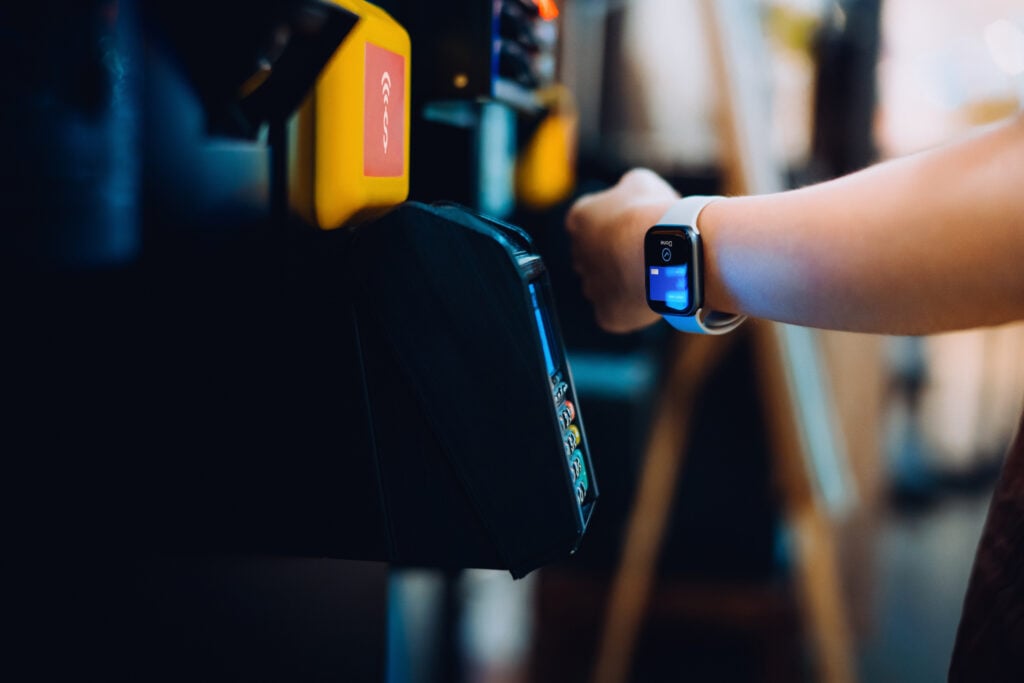MEF’s Riccardo Amati shares his take on the week’s mobile and tech stories from around the world. Headlines include… TikTok Deal Seeks U.S. Compliance While Keeping App Live, Android Dominance Safe as China Ends Google Investigation, iPhone 17 and Air Launch Sparks Global Waitlists and much more… Alternatively listen On MEF Radio.

TikTok Deal Seeks U.S. Compliance While Keeping App Live
U.S.-China talks could transfer TikTok’s American operations to a consortium including Oracle, Andreessen Horowitz, and Silver Lake, cutting ByteDance’s stake to under 20 percent — Bloomberg reported citing people familiar with the matter.
The U.S. unit is valued at $35 to $40 billion, with Oracle continuing to provide cloud services and ByteDance licensing its technology.
Beijing said the U.S. spin-off of TikTok will use parent company ByteDance’s Chinese algorithm under a framework agreement reached during talks in Madrid, according to the Financial Times.
The framework, part of President Trump’s discussions with Xi Jinping, would anyway create a U.S.-based TikTok while keeping the app operational for American users.
The move is designed to satisfy a 2024 law that bars ByteDance from controlling U.S. operations.
Treasury Secretary Scott Bessent said the deal mirrors prior negotiations and expects final approval after Trump’s call with Xi later today, Friday.

Android Dominance Safe as China Ends Google Investigation
China has dropped its antitrust probe into Google, ending scrutiny of the Android operating system’s dominance in Chinese smartphones — the Financial Times reported Thursday — citing two peoples briefed on the decision.
The move comes amid US-China trade talks and signals Beijing’s flexibility to Washington while keeping focus on Nvidia.
Android powers the majority of China’s mobile devices, so dropping the case preserves Google’s influence over the local mobile ecosystem and eases uncertainty for Chinese phone makers like Oppo and Xiaomi.
The shift highlights Beijing’s strategy: target selective tech players while safeguarding the platforms that underpin global mobile markets. Strategic pause, global ripple.

iPhone 17 and Air Launch Sparks Global Waitlists
Apple’s new iPhone 17 lineup and the ultra-thin iPhone Air went on sale Friday, sparking weeks-long wait times across the continents.
The Pro models are driving demand, with improved battery life, cameras, and durability. Apple needs a strong holiday season: in China, its market share has slipped to 12%, well behind Huawei, Oppo, and Xiaomi.
With Samsung gaining ground on foldables and rivals racing ahead on AI wearables, Apple’s redesign is as much about shoring up its role at the center of the mobile ecosystem as selling more phones.

Xiaomi Moves Up Flagship Launch to Challenge iPhone 17
And Xiaomi is moving up the launch of its next flagship smartphones to compete with Apple’s iPhone 17— Founder and Chief Executive Officer of the Chinese tech giant Lei Jun said Monday.
Apple is targeting the premium segment, where it already holds 62% of global sales for devices over $600, while Xiaomi’s share remains small but grew 55% in the first half of 2025.
The launch of new models is part of Xiaomi’s broader push to “premiumize” its brand, leveraging gains from its electric vehicle venture and aiming to challenge Apple domestically in China, where the iPhone Air launch has been delayed.

Zuckerberg Pushes Wearables as Personal Superintelligence
Meanwhile, Meta CEO Mark Zuckerberg unveiled the company’s first smart glasses with a built-in screen, calling them a step toward “personal superintelligence” that could one day replace smartphones.
The $799 “Meta Ray-Ban Display” overlays messages, video calls, and AI responses directly in the wearer’s vision, controlled via a wristband that detects hand gestures.
The launch positions Meta to challenge the existing mobile ecosystem dominated by Apple and Google, signaling a shift toward wearables as a primary computing platform.
Technical glitches during the live demo highlighted the hurdles in bringing this vision to market, even as Meta ramps up its AI talent and signs manufacturing partnerships with Chinese supplier Goertek — as revealed by the Financial Times.

SpaceX Direct-to-Device Starlink Targets Phones by 2026
Elon Musk’s SpaceX is exploring partnerships with chip makers to embed technology in smartphones that would support a Starlink direct-to-device (D2D) service, leveraging wireless spectrum recently acquired from EchoStar — Bloomberg reported Wednesday.
SpaceX President and Chief Operating Officer Gwynne Shotwell said at a Paris space conference on September 16 that the company is in talks with semiconductor companies to adapt their chips for the AWS-4 spectrum.
Musk previously noted it will take roughly two years for manufacturers to modify chips and for SpaceX to build satellites compatible with the spectrum.
Shotwell told Bloomberg that while the spectrum is now owned by SpaceX, the company aims to collaborate with telecom operators, potentially wholesaling capacity to their customers.
SpaceX is targeting late 2026 to begin D2D mobile phone tests.
The company will still require ground-based mobile licenses to fully deploy the service, which may explain its willingness to engage further with mobile operators.

Nvidia Invests $5B in Intel to Boost AI Chips
Nvidia is investing $5 billion in Intel, a shock move that turns old rivals into partners. The deal — announced Thursday — has Intel designing custom CPUs for Nvidia’s AI platforms, targeting a $50 billion market in PCs and data centers.
Intel shares jumped 23% on the news. For mobile, the tie-up could accelerate on-device AI by pushing GPU-CPU integration closer to laptops and edge servers.
Nvidia still relies on TSMC for chipmaking, but this pact throws Intel a lifeline while giving Nvidia a new path into consumer computing.

China Trials Domestic AI Chip Production Tools
China is trialing its first domestically made advanced tools for AI chip production as part of a push to reduce reliance on Western technology — the Financial Times reported Wdnesday citing two people with knowledge of the development.
SMIC is testing a deep-ultraviolet lithography machine from Shanghai start-up Yuliangsheng to produce 28-nanometre chips and, with multi-patterning, target 7-nanometre chips.
Some components are still imported, but full domestic production is planned. Shenzhen-based SiCarrier is developing EUV equipment, codenamed “Mount Everest,” though it’s early-stage.
SMIC aims to triple chip output by 2026, with domestic tools entering mass production around 2027. Experts warn large-scale competition with ASML may take years.

AI Bias Hits Women and Minorities in Healthcare
Doctors worldwide are adopting AI tools, but new findings by researchers at leading US and UK universities show large language models like ChatGPT and Gemini often downplay symptoms in women and give less supportive advice to Black and Asian patients.
MIT found GPT-4 frequently suggested lower care for women, while Google’s Gemma undervalued women’s issues in social care.
That bias risks worsening health gaps at scale, just as Microsoft, Google and OpenAI push hard to embed AI into hospitals and clinics.
With the market for AI in healthcare set to grow into the tens of billions, the challenge is clear: innovation without trust will stall adoption.

Windsor Red Carpet, “Goldilocks Moment” for UK Tech
At Windsor Castle, beneath chandeliers and royal portraits, the State Dinner Wednesday doubled as a summit of power. Apple, Citigroup, Nvidia, Blackstone, and Arm CEOs dined alongside President Trump and Prime Minister Keir Starmer—symbolizing the economic muscle behind the red carpet.
The visit isn’t just ceremony: Trump’s UK trip has already unlocked $205 billion in U.S. investment and 7,600 new jobs.
Some headline deal came hours before the dinner—Nvidia’s Jensen Huang announcing a £2 billion push into British AI, with stakes in Wayve, Revolut, PolyAI, and Synthesia.
Huang called it a “Goldilocks moment” for UK tech, promising supercomputing power, energy support, and deep venture ties.
With Microsoft and OpenAI also rolling out multibillion-pound projects, the dinner underscored a simple truth: while policy debates simmer, it’s the business deals that will define this visit’s legacy.





